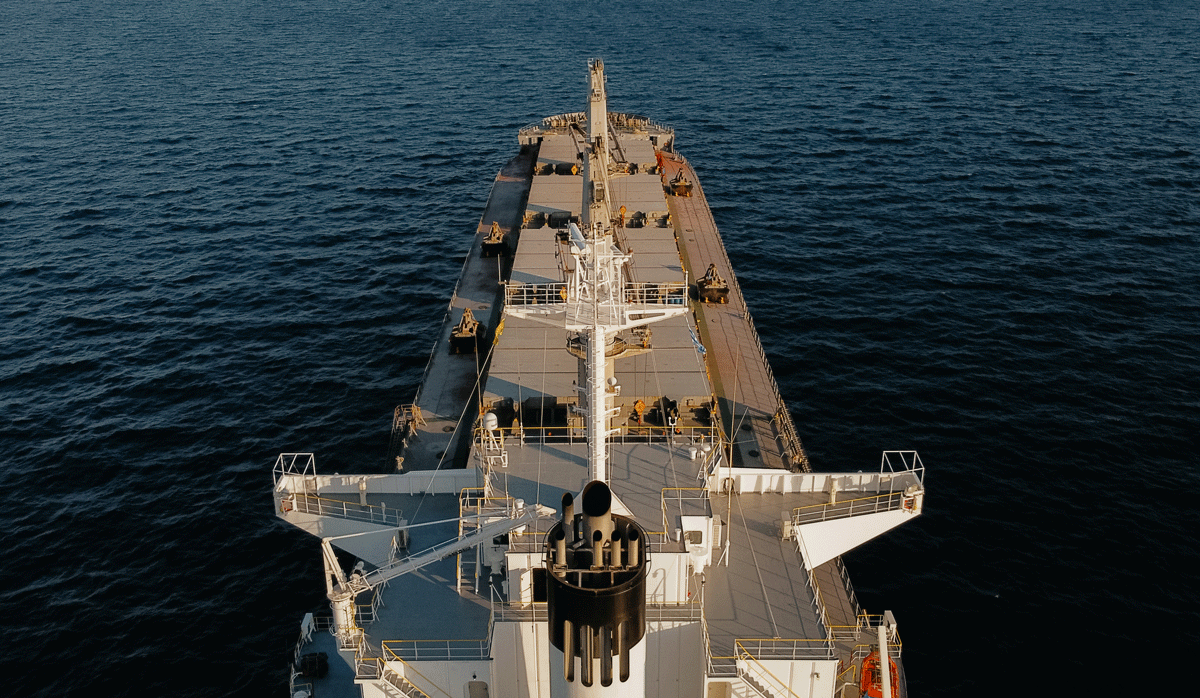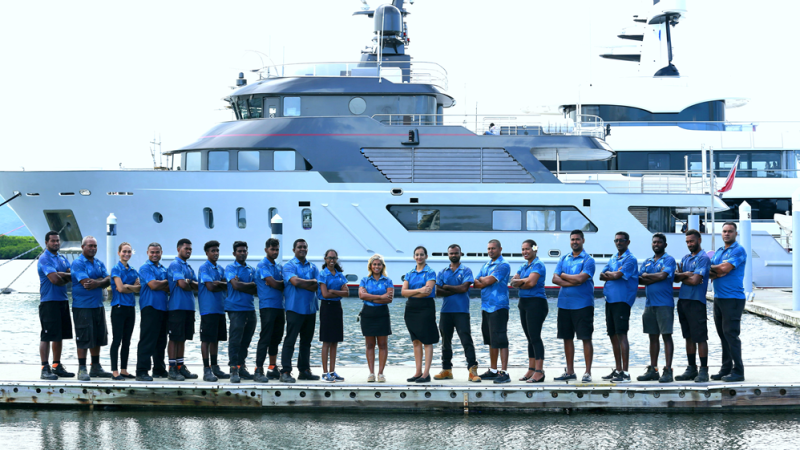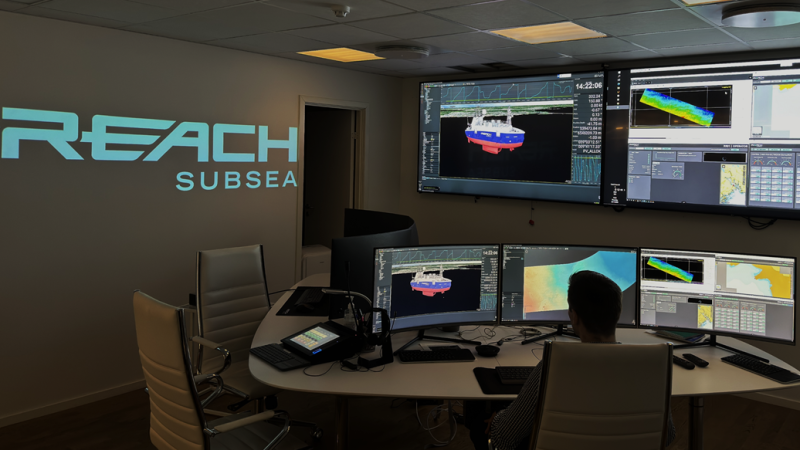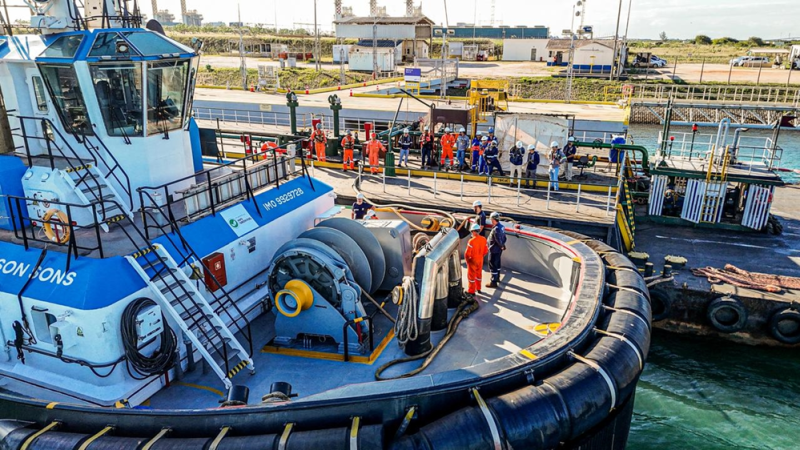Cherif Khoury has clear memories of when Blue Fleet Group was founded, which is impressive when you consider the fact that he was six years old at the time. “Blue Fleet Group was founded in 1996 by my father, Roy Khoury,” Khoury recalls. “I was six and already had a very clear idea of what I wanted to do. I wanted to join him.”
To achieve that ambition, Cherif Khoury went on to do a degree in Maritime Business and Maritime Law at Plymouth UK, as well as completing a Master’s in Shipping, Trade and Finance at CASS Business School London, eventually joining Blue Fleet Group in 2012. At the time the company was overseen by a team of six owners who had nurtured Blue Fleet Group across both the managed and chartering side of the business. He immediately saw big opportunities for growth in Blue Fleet Group’s chartered division.
“We know so many people in chartering, we realised the only challenge was to open a crewing and technical department,” Khoury tells us. “Blue has the control of over 30 vessels on an exclusive basis, with dead weights ranging from 10,000 to 58.000 tons. In 2023, the company carried close to 4.5 million tons of cargo on international routes.”
All its ships are fitted with the best available technology, enabling Blue Fleet Group to build stronger relationships with traders and charters. The company works with rice traders shipping close to a million tons per year from China into the Mediterranean.
“They trust us to find ships from our pool of ships or the market in general as and when they are needed,” Khoury says. “That has been an excellent cooperation.”
The firm has also done a lot of trade alongside agricultural merchant Louis Dreyfus over the last two years, particularly in Ukraine.
“Two and half years ago we were a team of six people, the team has grown since then to 18 people,” Khoury tells us. “We have grown pretty fast.”
 Led by Experience
Led by Experience
From the beginning Blue Fleet Group’s business model has been informed by Khoury’s father’s lifelong career in the shipping sector.
“He has been in the business since he was 20, he’s now 71,” Khoury tells us. “He has 51 years of experience in the business. I am lucky to be sitting next to him in the same office, learning every day from him. He has always been spoken of highly by people in the sector.”
One of the key lessons that Khoury has taken from watching his father work is the importance of building strong relationships in every facet of the company’s operations.
“Our best-selling point is the great relationships we have with traders and charters and owners,” Khoury says. “Some of these owners have been working with my father for as much as 25 or 30 years.”
These long-term relationships are also reflected within the company. Blue Fleet Group’s Lebanese office has three people who have been part of the company for the last ten years, with another two who joined five or six years ago. These long relationships are the norm.
“Our General Manager has been with us from the start,” Khoury says. “She has been here for 26 years, and we have four other people who have also been with us for over 15 years. Our team is the result of two decades of team building.”
The Next Generation of Shipping
But while Khoury has learned a lot from the way his father does things, he is also applying that knowledge to the next generation.
“That second generation is starting to come through now, and I need to take care of that and keep these relationships alive,” Khoury says. “I am working with the sons and daughters of the people my dad was working with. We are passing on that knowledge of the market.”
As well as bringing in the new generation of the industry, Blue Fleet has also had to adapt as it has moved into owning its own fleet.
Two and a half years ago, Blue Fleet acquired four supramaxes and two handy size bulkers. Since then, the handies were sold, along with three supramaxes, and two younger supramaxes were bought (both scrubber fitted), and a third one is on the way.
“We buy ships, trade them, and we are open to selling them if there is a good opportunity. Then we keep the money, buy another, younger ship or one that has other specificities,” Khoury says.
But while the ships that make up the Blue Fleet may change, there is one element that remains consistent across such ships.
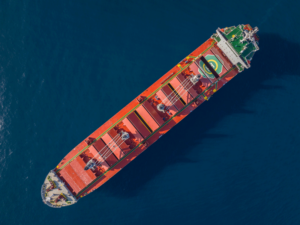 “They are always after Arsenal Players!” Khoury points out.
“They are always after Arsenal Players!” Khoury points out.
Blue Fleet has now established a holding company “Blue Fleet Holding S.A.” which will own all the ships belonging to the Group.
“When we made the decision to become ship owners, we knew it wouldn’t be easy,” Khoury says. “It is so much more than simply getting the freight onto the ship and sailing her. It has been a long ride with a lot to learn.”
It has meant fostering collaboration between numerous different departments, each with their own field’s technical knowledge and their own resources to manage.
“One of the biggest challenges has been to make sure every department can draw information from the others as needed,” says Khoury.
Blue Fleet Group’s General Manager and CFO is based in Greece. Khoury is based in Lebanon, and he is the first to speak about the importance of in-person meetings.
“It means something different to meet in person rather than over Teams,” he says. “I have been considering a move to Greece in the next two or three years, but as chartering manager of the company, this has been my biggest challenge. The information can flow much more easily in person than when you are sitting in front of a camera trying to make yourself understood.”
At the same time, like any company engaged in global shipping, international conflicts present an ongoing challenge. The war in Yemen has been a hazard for any ships travelling through the Red Sea to Pakistan the Red Sea to Pakistan, India, the Persian Gulf or the Far East, with questions raised about whether it is better to risk the passage or go around the Cape. However, while the passage remains hazardous, Khoury notes that Lebanese-owned ships that are not from the UK or US, or trading with Israel, tend not to face any opposition.
Looking forward, Blue Fleet Group has big plans. Roy Khoury set his son the target of acquiring a fleet of ten ships for the Group by the time he is 40 – six years from now.
“This is the target,” Khoury says.
But as well as growing its fleet, Blue Fleet Group is also looking to diversify.
“We have discussed moving into the tankers sector. Typically, we have worked with dry bulk carriers, but we are talking to tanker owners we know and feel it looks like a good sector to diversify our portfolio into. Historically, when the dry bulk sector is not doing well, the tankers sector does, and vice versa.”
